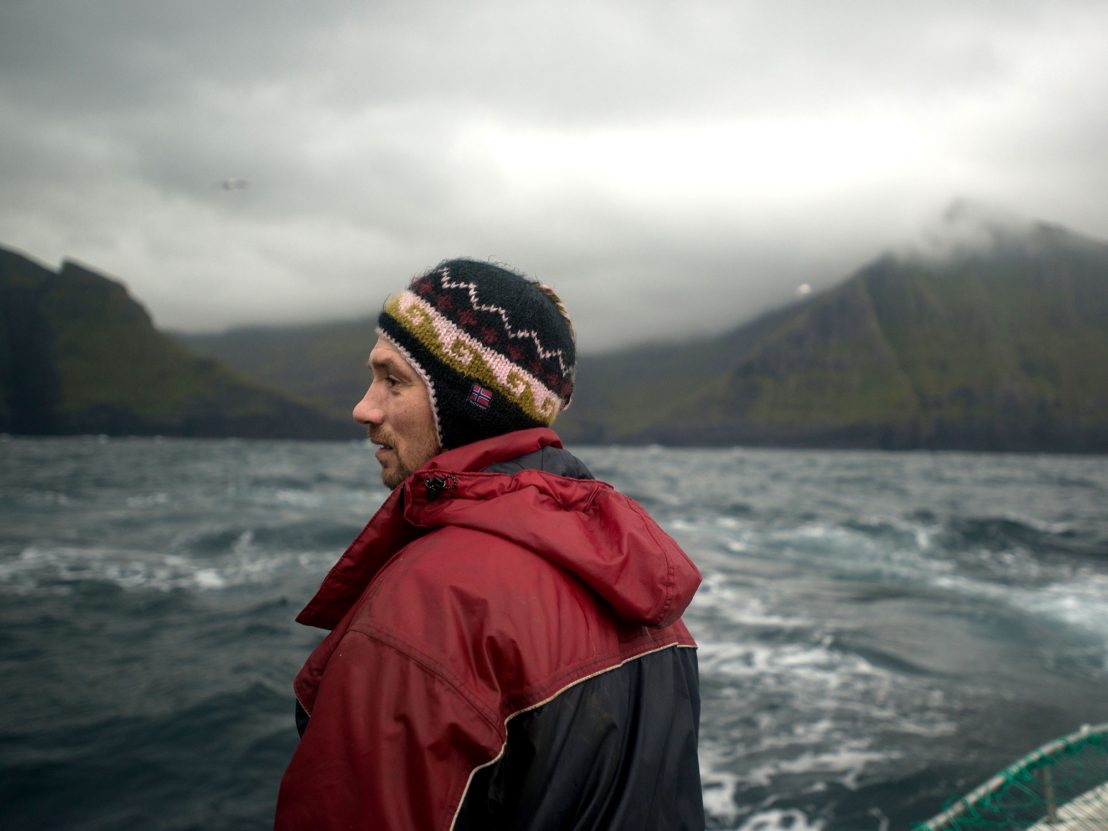
“In the North Atlantic Ocean between Iceland and Scotland lie the Faroe Islands. Home to 48,000 descendants of vikings, this small nation has always relied on the seas for its livelihood.” After these introductory lines, Mike Day’s documentary cuts to stunning panoramic shots of the remote Faroe Islands, then to sea waters running red with whale blood in the aftermath of the one of the Faroese’ oldest traditions – the whale hunt. Silent of commentary, these images, as those throughout his film, are presented without judgement but left to speak for themselves.
Director Day first heard of the Islanders’ whaling practices as many others had – campaign emails circulating the media-fed scandal of whales being slaughtered for sport or rite of passage on a faraway island, a barbarity from a backward people that ought to be stopped. Through 53 weeks of shooting over four years, Day sought to uncover the true story behind the headlines. Gaining insight was not easily won:
“We drank a lot of schnapps with them,” Day explains with a smile. “And got to know them. We went on the hunt, we went down the cliffs with ropes wrapped around our waists in the middle of the night, spent hours on ledges while they hunted for the seabirds.” Through painstaking patience and tenacity, including falling halfway down a cliff filming the seabird hunts (“I think we earned our stripes that day”), Day and his team were able to gain the trust of the community. And demonstrate their agenda was not that of activists that had gone before them – almost comically brought to life by the arrival of Pamela Anderson on an expensive speedboat to make a woefully misplaced protest – but rather present their reality in all its detail and nuance.
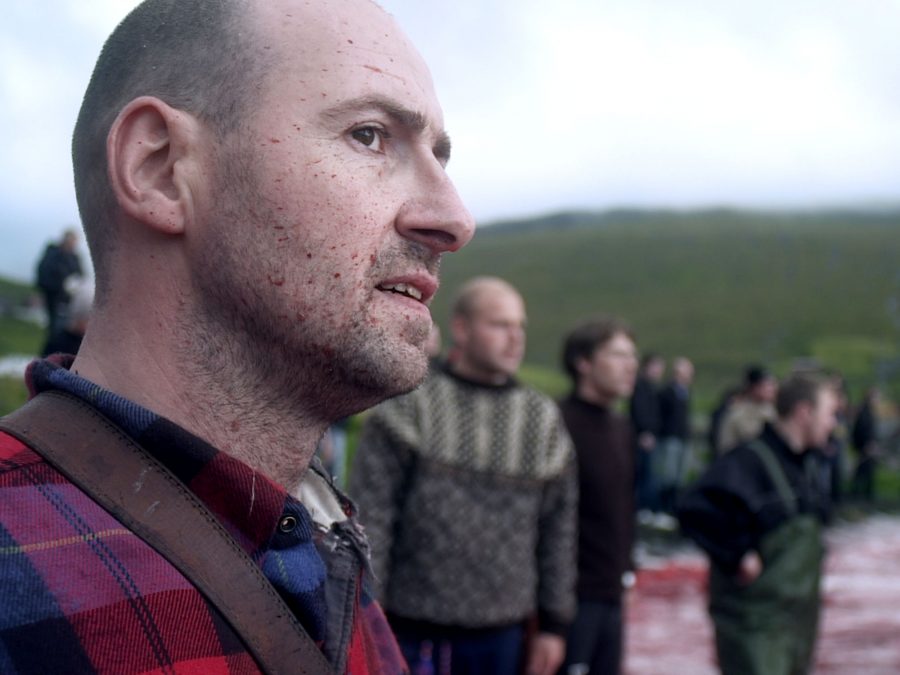
“I think there’s an easy hypocrisy to come to stories in far away places with a very preconceptive view of it,” the director told me. “I mean we kill so many animals. We don’t see the blood, it goes out a pipeline in an abattoir. So unless you’re vegan, you’re involved in the blood and the slaughter of animals. There, they are putting the meat on the table with their own hands and they’re much more connected to the process. There’s connection we don’t have with nature.”
In particular, being able to capture the whale hunt itself in vivid detail, from the rush of the whole community onto the beaches, to spears plunging, tails thrashing, faces being splattered with blood, chunks of whale meat being carted off in wheelbarrows, was a privilege not previously granted: “On that hunt, well no foreigner had ever been allowed on it before. So to be able to see it is one thing, but to able to capture it on film was really a humbling experience.”
The result is a fascinating piece of cinema, taking the viewer on a journey Day himself experienced to understand the way of life of this unique community from its epic landscapes to intimate familial moments around the dinner table, in a setting the director describes as a “cinematic microcosm” but where the frontline story is its people.
And we discover, as he did, that heart of the matter is less the slaughter of animals we consider should be protected but rather that human activity has so heavily polluted the oceans that pilot whale meat has become toxic for the Faroese to eat, with the life-long research of Professor Pal Weihe showing dangerous levels of mercury causing damaging effects on the brain: “It’s really a tale about them coming to terms with the environmental damage that we’ve done and having to reconcile their old traditional ways of life with modern life that they now lead,” Day reflects.
“They’re not going to stop killing the whales more than we’re going to stop killing pigs because someone from the Middle East thinks we shouldn’t eat pigs. Nothing was going to happen with that approach in my opinion. I wanted to look at the bigger story that really should unite both sides and actually has. Anti-whaling organisations and whalers alike should all be campaigning for these seas to be cleaner, the toxicity of the whales should be something that disturbs us all. Because it’s not just the whales, it’s everything in the sea that’s being polluted by us, by burning coal, by gold mining. Totally unnecessary things.”
Echoing the documentary’s recurring references to the Huldufolk, Farose mythical people who would warn the community to stay in equilibrium with nature, the film is less a spotlight on a tradition, but an exquisitely-wrought warning to the world of the devastating impact of human activity: “It’s a tragic tale really but one with a happy ending if people react and listen to the messages that were coming from the natural world and from the islanders and from the whales.”
Published 10 Apr 2018
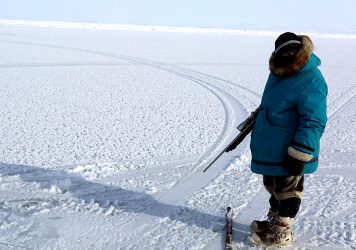
Angry Inuk is an intriguing documentary about the death of political nuance.
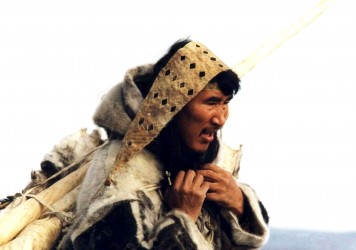
Released 15 years ago, Zacharias Kunuk’s snowbound epic raised awareness of Arctic culture.
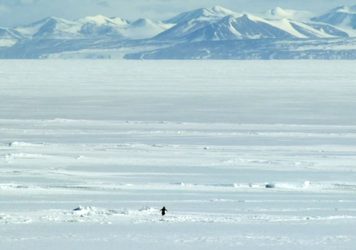
By Tim Cooke
Encounters at the End of the World features one of the great existential moments in modern cinema.